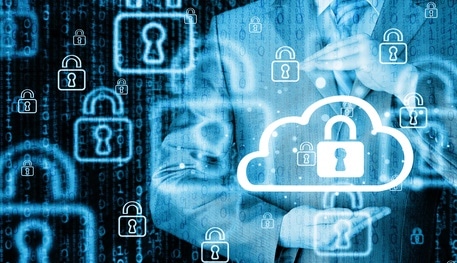You’re never too small to be attacked. Breaches at big companies like Target, Sony and Wells Fargo make the news, but hackers are attacking smaller companies as well. They’re looking for small companies who are in the supply chain for larger companies or businesses who accept credit cards as a form of payment.
Hackers don’t just show up. They look for weak links like people who click on everything in their email.
Here are some steps you can take to protect yourself and your information.
- Install all software updates for your operating system and web browser. Hackers attack where they see weakness. A system that hasn’t been updated recently has flaws that can be taken advantage of.
- Install a firewall on your computer. Firewalls are the first line of defense. They monitor network traffic and connection attempts into and out of a network. Personalize your settings during the setup process to determine how much data you allow into your system from the internet. Update the firewall regularly.
- Purchase or download anti-virus software. This software will find programs/files/software that might compromise your computer. It performs protective measures to quarantine, fix, or permanently remove questionable programs. Schedule your anti-virus software to scan your system and update automatically and frequently.
- Install anti-spyware / adware programs onto your system. This intrusion is not as dangerous as a viruses but adware places advertisements onto your browser and incorporates pop-ups into your programs. Spyware can survey your internet behavior and copy passwords. It also slows down your computer making it more vulnerable.
- Change your passwords often and use a different one for each website you regularly log into. Do not use the obvious, such as anniversaries or birthdays. One expert suggested using a short sentence such as, “I love rhubarb cake” and substituting some of the letters for numbers, use both upper and lower case and insert a symbol in the middle. Example: Ilove$r4ubarbcak3. (No, that’s not one of my passwords.) Make sure you keep a list of your passwords in a secure place.
- Password protect every device you own, including your phone. Why make it easy for someone who finds your device to access all your information?
- Beware of phishing emails. Trust but verify. Don’t click on any link within an email and delete emails from unknown sources.
- Employees are the biggest threat to an organization. Create employee policies that include specific consequences for ones who repeatedly click on links and introduce malware into the organization.
- Limit the use of removable media. Many firms disable the USB ports on computers and provide employees with encrypted devices to use.
- Back up your data. Use either an external hard drive or an online service.
Doing all this takes time, energy and money. But what will it cost if your system is hacked and information stolen? It’s worth the effort.

